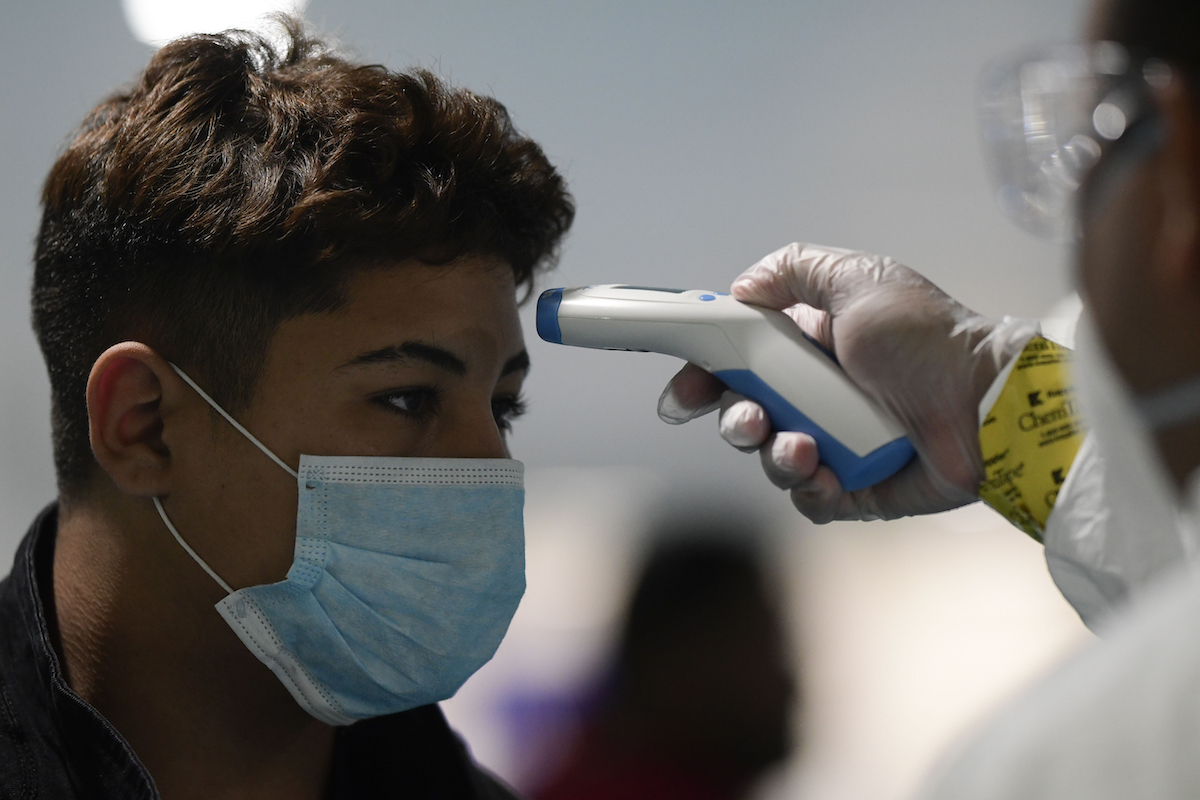

National Guard personnel carry out bio screening on arriving passengers at the Luis Muñoz Marin Airport in an effort to detect and isolate the new coronavirus, in Carolina, Puerto Rico, Tuesday, March 17, 2020. (AP Photo/Carlos Giusti)
By DÁNICA COTO, Associated Press
SAN JUAN, Puerto Rico (AP) — The U.S. territory of Puerto Rico announced Thursday that it would extend a two-week curfew to April 12 and warned of new restrictions to help curb coronavirus cases.
Gov. Wanda Vázquez said non-essential workers will have to be home by 7 p.m. starting March 31, two hours earlier than the current curfew. In addition, vehicles with license plates ending in even numbers can only transit Monday, Wednesday and Friday. Those ending in uneven numbers can only transit Tuesday, Thursday and Saturday.
Vázquez said the new restrictions are in response to the nearly 400 people who have been cited for violating a curfew imposed March 15. She stressed that non-essential workers have to stay home.
“That the best antidote to COVID-19,” she said.
https://www.facebook.com/139411502915/videos/902560260185657/
All non-essential businesses will remain shuttered until mid-April, and people will only be allowed to leave their homes or hotels to go to the bank or buy food or medicine.
Dr. Segundo Rodríguez, who leads a government task force to fight the coronavirus in Puerto Rico, said he estimates there are more than 600 people infected on the island of 3.2 million people given that more than 60 have tested positive so far. The government also has reported two COVID-19 deaths: a tourist from New York and another from Italy.
Also on Thursday, the governor announced Puerto Rico’s third health secretary in less than two weeks: Lorenzo González, a psychiatrist who served as the island’s health secretary during the 2009 H1N1 pandemic. The appointment comes hours after former health secretary Concepción Quiñones resigned for unknown reasons. She had been appointed after Rafael Rodríguez resigned earlier this month over complaints over how Puerto Rico’s health department was handling COVID-19 cases.


